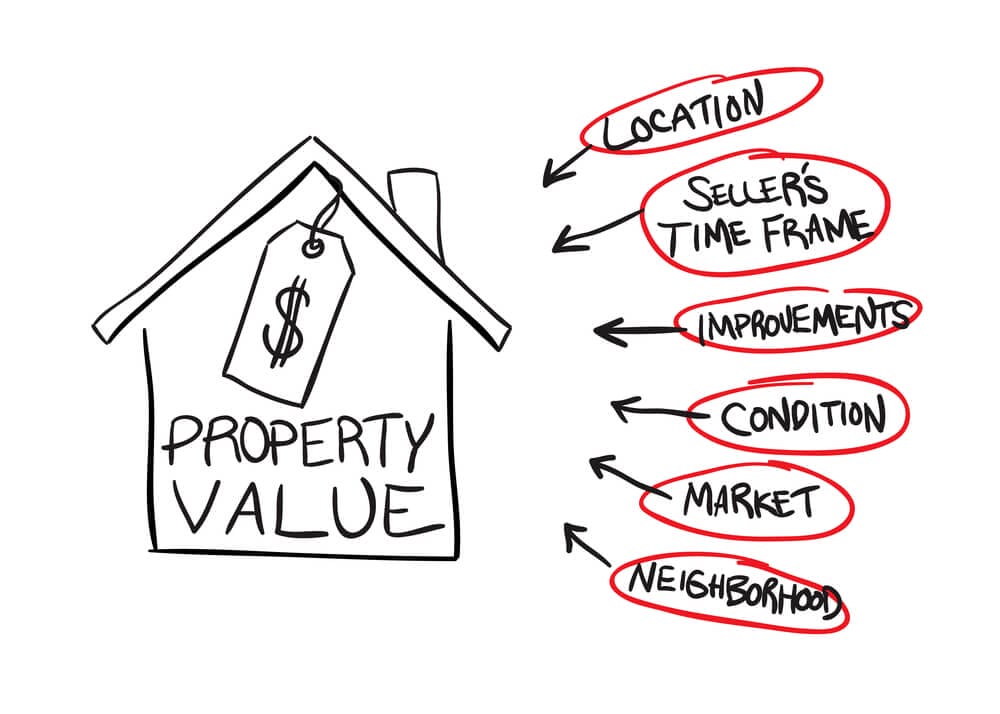Appraisal Didn’t Match Your Purchase Price?
When you first apply for a mortgage, you may not realize it but there are actually two approvals that need to be issued. First, the approval for you based upon things such as credit, employment history and sufficient cash to close. Second, the property must also be evaluated. A borrower can have a 20 percent down payment, an 800 credit score and debt-to-income ratios in the single digits. Yet if the property does not appraise, none of that matters. What the buyers and sellers agree to isn’t always the same value as what ultimately appears on a property appraisal.

What Happens When The Amounts are Different?
Lenders review the appraisal and compare with the sales price. Lenders will always use the lower of the sales price or appraised value. In stable markets, the appraised value will almost always be the very same as the sales price. Yet when the appraised value comes in higher than the sales price, the lender doesn’t award this newfound “equity” to the buyers. Instead, the actual sales price is used for loan approval.
The appraisal must also indicate a general condition of the property making sure the unit is sound with no structural defects. There should also be recorded sales of similar properties that have sold within the previous 12 months with a minimum of three such sales be within the previous six months if available. Then, certain price adjustments will be made to accommodate the differences between the subject property and comparable sales.
For example, a single family home sitting on a larger lot will be valued higher than the subject property and an adjustment will be made to accommodate. If the appraised value comes in higher than the sales price, the buyers need do nothing other than to proceed with the loan process as normal. If the appraised value comes in lower, that’s another story. But not necessarily a deal-breaker.
Here are some options when the value of the property comes in lower than the sales price :
1: Renegotiate. This simply means letting the sellers know the value came in lower than the accepted price and as such you want to renegotiate the original offer and amend. All the seller has to do is to accept, adjust lower or decline. You and your agent can provide a copy of the appraisal to show why the value came in lower but be prepared for some resistance. The sellers listed their home based upon the advice of their real estate agent and the agent in turn provided them with a Comparative Market Analysis which purportedly supported the original price. There is language in your sales contract that allows you to pull out of the deal and still get your earnest money deposit back without penalty if the value comes in lower than the sales contract.
2: Question the Appraiser. This is a little trickier in today’s environment because lenders are not supposed to have any direct contact with the appraiser unless there is an obvious error in the report. Instead, if you, your lender or your agent disagree with a comparable sale used or know of a property recently sold the appraiser didn’t mention, you can try and get the appraiser to make an adjustment. That, too can be a bit of an issue because the appraisal will most likely respond the appraisal meets standards and the comparable sales he used are the best ones available.
3: Make Up the Difference. If you still want the home and the sellers refused to negotiate and the appraised value is confirmed, your final choice, other than walking away, is to come to the closing table with the difference between your original down payment and the lower value. If you planned on putting down 20 percent of the sales price and the value comes in $5,000 lower, you’ll be required to come to settlement with the original 20 percent plus $5,000.
4: Seller Contribution. Ask the seller to pay for some or all of your closing costs. If your closing costs are say $5,000 and the value is $5,000 lower than the sales price, it’s essentially a wash if the seller agrees and you pay the difference.

Finally, a couple of things to note here. The first, if the appraised value comes in lower than your offer, are you sure you want the property after all? If there is supporting evidence, even after an appraisal review, the lower value is the correct value, once you move in you’ll immediately lose some equity based upon the current market value of the home.
On the other hand, if the sellers refuse to negotiate on any matter, they and their agent know there is a likelihood the value issue will come up again when a new offer is made. If another set of buyers makes an offer which is then higher than what the appraisal reports and financing is needed, the issue will happen all over again. The seller may indeed need to readjust the thinking.
When an appraisal comes in lower than expected, it can be difficult to have the appraiser make changes unless there’s a glaring error. Have the lender take another look at the appraisal then have the lender contact the company that orders and manages the appraisal to dispute the figure based upon evidence provided. Or, if you’re still sure you’re right and the seller is wrong, you can always order another appraisal on your own and see what happens. However it ends up, you do have options when lower values are an issue.
They may not always be the ideal situation, but if you do want the home and you feel comfortable with the price you offered, then full steam ahead!


